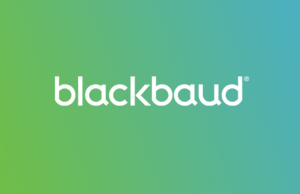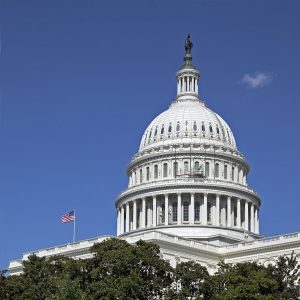The typical rancor launched by political mailers liberal and conservative alike toned down a bit following the terrorist attacks of September 11, but it is expected to heat back up.
Before the terrorist attacks, partisan Democratic party mailers were beating President Bush like a rented mule, condemning him with attacks on his stiff persona and policy concepts. Most environmental groups and socially motivated alliances likewise halted such mail depicting the president and his policies in a venomous way.
However, after showing the American people a strong and passionate side following September 11, Bush may force opponents to simply knock his policies instead of personally chiding him.
“We ratcheted down the rhetoric and (9/11) certainly had an effect. … We we’re much less partisan,” explained Dave Dogan, marketing director for the Democratic National Committee (DNC) in Washington, D.C.
The DNC cancelled two house mailings and stopped telemarketing altogether following the attacks. But after a three-month hiatus, the group was almost back to full steam with its discourse opposing President Bush’s approach pertaining to the economy, economic stimulus, the proposal to privatize social security, and Medicare.
According to Dogan, DNC has never and will never attack the president’s character — only his and GOP agendas. “As a partisan organization, the appeals were focused on the democratic agenda, but also at the same time we’re challenging Republican policies, and then challenging President Bush,” said Dogan.
“Now certainly after the appeals that went out in October/November, for example, they were much more institutionalized messages. Very institutional about the democratic values and democrat party issues, and definitely steered away from partisanship,” he said.
With the threat of anthrax contributing to a change in mail patterns, DNC is almost back to normal with its drops and the less combative material has given away to more of a controversial message.
“We have mail going out right now that’s specifically attacking (the president) on the economic recovery and the economic stimulus and his proposals … specifically him … his proposals to tax cuts for the wealthiest Americans and for the wealthy corporations whereas we have more of a pragmatic approach,” said Dogan.
As DNC morphs back into mailing form, its Washington, D.C., counterpart the Republican National Committee (RNC) is sticking to ballyhooing the president and his agendas in its direct mail appeals.
According to RNC Deputy Press Secretary Kevin Sheridan, the group suspended its mailing for approximately a month after the terrorist attacks — resuming but suppressing drops to areas most affected in New York City, Connecticut and New Jersey.
“We’ve basically been sending direct mail out that’s positive and supports the president and urges people to financially support the president to help him do what he’s been doing on his agenda,” explained Sheridan. “(RNC direct mail) really wasn’t negative to begin with so it’s not as though we’ve had to cool a lot of hot rhetoric because there hasn’t really been that much hot rhetoric to begin with.”
“I think (what’s) happening obviously is the attitude towards President Bush (has changed) … So for organizations that are in the political arena and oppose Bush policies I think donors still want to see people take strong positions on the policies that they’re opposed to,” said Frank O’Brien, president of O’Brien, McConnell, Pearson in Washington, D.C. “But there’s no question that Bush isn’t kind of the cardboard kind of figure that he was of the spring or the summer.”
O’Brien, who works with many political organizations in the Washington, D.C., area, said the almost mocking rhetoric being sent by liberal groups about President Bush’s policies and character stopped after September 11 because he said the general consensus was that it seemed like the right thing to do at the time.
“I think most political mailers did what everyone did right after September 11th, which is they kind of decided that the dignified thing to do was withdrawal from conversation about political issues for a while,” noted O’Brien. “So they took a little bit of a break. I think it varies by organization.”
Now O’Brien said he expects political groups to re-engage donors and are finding that the same general impact the terrorist attacks has had seems to be true about political giving. … “The events really hasn’t shifted donors priorities as much as it’s deepened their sense of commitment to things they were committed to,” O’Brien said.
Greenpeace cancelled an environmentally charged acquisition package but not because it pictured President Bush on the carrier envelope and opposed his energy policies. It was stopped because the organization decided that trying to acquire donors following September 11 was not a fiscally responsible thing to do.
According to Jennifer Jones, director of direct marketing for Greenpeace, the decision to cancel it altogether was due to the small window of acquiring new donors that occurs at the end of the year would pass by and delaying the package would miss it.
“We cancelled it because honestly, terrorist attacks, war, recession, all those sorts of things, we just felt that from a fundraising point of view that was not the appropriate time to be sending prospect mailings out,” said Jones. “We felt that the return on investment and the financial impacts would not be what we wanted them to be, and that was the reason why we pulled the mailing.”
Although the Greenpeace office in Washington, D.C., put the kibosh on one of its acquisition mailings, it continued mailing to existing donors with the same message it had on September 10. “One thing that we found is that our donors are very loyal, very supportive of Greenpeace and they remained so for the rest of the year which we were thrilled about,” explained Jones. “So we found that we did not deviate from our message and we were still very successful with it.”
Greenpeace is forging ahead with its prospecting mailing and began so in earnest in January. The message in those packages will continue to have President Bush in them and talk about his energy policies, global warming, and missile defense initiatives.
Jones advised that the president is not the only person out there who Greenpeace attacks for viewpoints on the environment, and added that the message remains the same as it was prior to the terrorist attacks.
Jay Heavner, director of development at Washington, D.C.-based Parents, Families and Friends of Lesbians and Gays (PFLAG), said it refrained from making any changes to its mail packages after September 11, but postponed one acquisition appeal until February.
“We stayed in the mail with our other programs and there was, on one letter that was going out we added a handwritten note at the top just to acknowledge the tragedy,” said Heavner. “Our issues are still there, our donors are still concerned about the issues, and we’re seeing at least initially that September 11th hasn’t seemed to affect our direct mail a great deal. … People are still giving.”
As for keeping an eye on President Bush and his policies, Heavner said PFLAG works on a grassroots level for safe schools and other issues, but the President’s administration is being very careful not to discuss gay and lesbian issues very much.
“President Bush has also appointed at least two openly gay people to the administration,” noted Heavner. “We’ll wait until we can really point to hard and fast policies that are making life worse for (gay and lesbian) people … We’re reserving judgement … and we are certainly watching.”
Pro-choice groups like Planned Parenthood Federation of America, whose direct mail appeals generally rip into Bush policies about a woman’s right to choose, tamed mail packages following September 11, said Molly Smith Watson, director of development for direct response for the New York City-based 501 (c)(3).
Planned Parenthood also operates a 501(c)(4) social welfare organization called the Planned Parenthood Action Fund, which cancelled two mailings that were set to go out in September and October.
The (c)(4) group is trying to reschedule the drops because it shares the same donor base as the Federation, whose October, November and December mailings compiled higher than anticipated revenues from existing donors, said Smith Watson.
“The Planned Parenthood Action Fund had mailings scheduled to go out in September that were cancelled because we didn’t want to send out political mailings during that time because our prime target in political mailings is the anti-choice president,” noted Smith Watson.
She said they decided to change the message following September 11 to focus more on the organization’s proactive agenda items including working to get universal access to contraception and medically accurate sex education.
Changing the written message in direct mail appeals to include stories of the almost 200 anthrax threat letters sent to Planned Parenthood not only was timely but was successful.
“We had 200 letters sent to us within a two-week period in October and we were able to send out (an appeal) to our donors to ask for their support in helping to deal with that,” Smith Watson explained. “It let us become current again without having to go to the issues where we would be attacking the administration.”
Smith Watson said there are no plans to go back to mailings that attack President Bush or his policies in the near future because changing the copy has benefited the organization.










